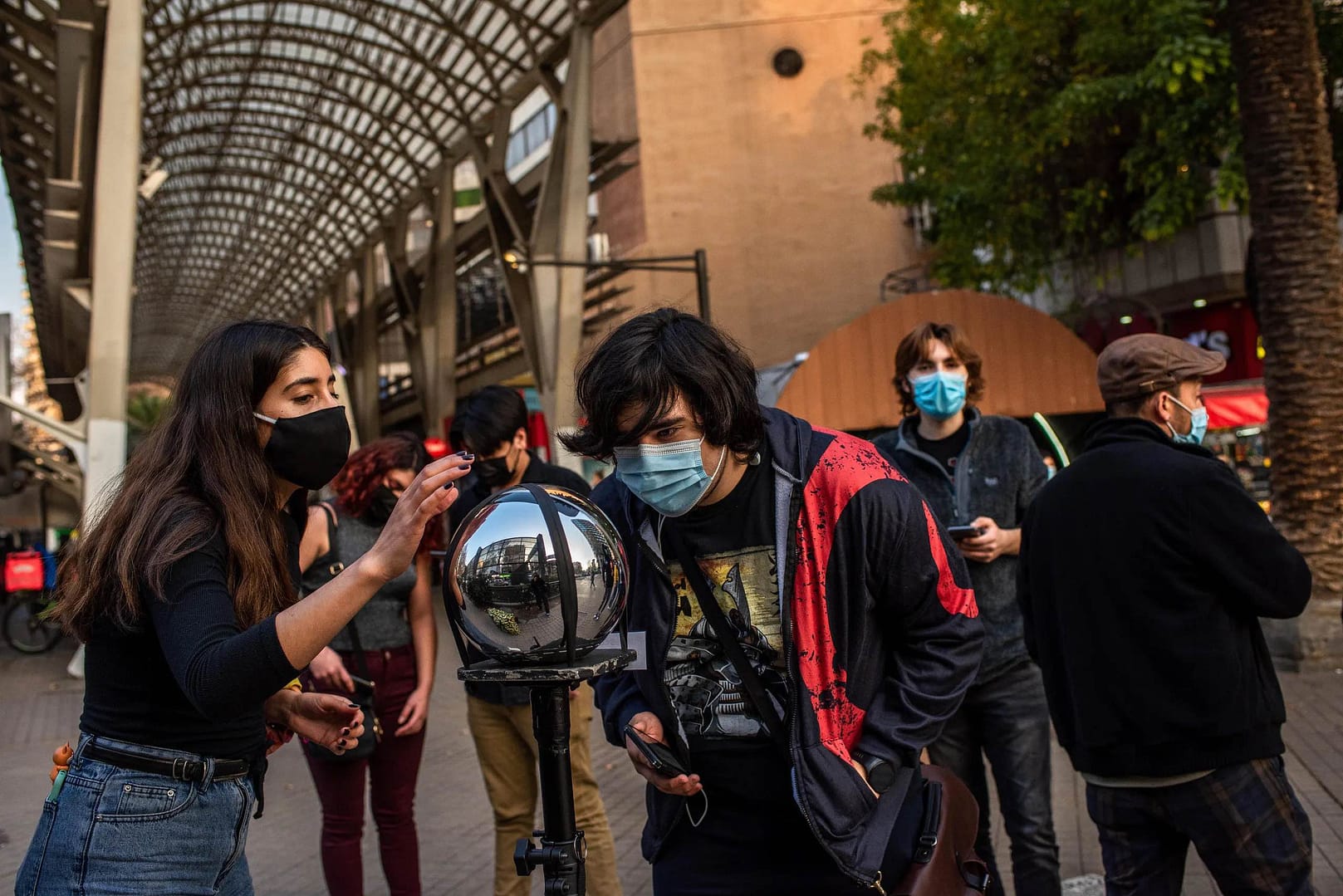Worldcoin, the cryptocurrency and digital ID project, aims to revolutionize the entire identity verification system. By scanning users' eyes with a unique orb, Worldcoin provides a secure and reliable way to distinguish real humans from bots. Spearheaded by Sam Altman, the chief of OpenAI, Worldcoin has ambitious plans to expand its eye-scanning operations to 35 cities across 20 countries.
However, this project has faced criticism for its use of biometric data and its potential conflict with blockchain technology's anonymity. Despite these concerns, Altman envisions is project reaching a staggering 2 billion users, which is an astonishing feat, to say the least.
In an era where distinguishing between human and AI work is increasingly challenging, Worldcoin's mission gains significance between the blurred lines of transhumanism. Let's explore the identity verification process of Worldcoin, the role of cryptocurrency, expansion plans, and the project's focus on privacy and inclusivity.
Discover how Worldcoin works and its potential impact on the future of digital identity.
Worldcoin's Identity Verification Process

The identity verification process involves scanning users' eyes with an orb to provide a unique digital identity, ensuring that they are real humans and not bots. This process requires in-person usage, as individuals need to physically interact with the orb for their eye scans to be conducted.
The orb captures the intricate details of the user's eyes, which are then used to create a digital representation of their identity.
By using eye scans, Worldcoin aims to address the challenge of distinguishing between human-made and AI-generated content. This method provides a more precise and personal form of identification compared to traditional methods such as usernames or passwords.
However, critics have understandably raised concerns about the use of biometric data and the associated privacy risks. The collection, storage, and use of such personal information need to be carefully addressed to protect users' privacy.
Keep in mind, blockchain technology and the role of cryptos fundamentally rely on security and privacy, without the need for a trusted authority, middleman, or central institution.
The unique digital identity generated through the eye-scanning process is linked to Worldcoin's cryptocurrency and app. Once users' identities are verified, they gain access to the cryptocurrency and can use it for payments, purchases, and transfers. The token has been issued to eligible beta participants and is tradable on exchanges like Binance, Kucoin, Uniswap, MEXC and others.
This project plans to expand its eye-scanning operations to 35 cities across 20 countries, aiming for a global presence. By onboarding orb operators in additional locations, they hope to increase accessibility and reach. Worldcoin envisions a future where identity verification is maximally inclusive, providing a privacy-first and decentralized solution for individuals worldwide.
Role of Cryptocurrency
Utilizing a cryptocurrency token, users can seamlessly engage in transactions, payments, and transfers within the Worldcoin ecosystem. The token plays a pivotal role in the project's vision of creating a global digital identity system.
By incorporating a cryptocurrency, Worldcoin aims to create a decentralized and privacy-first solution for identity verification. The use of a digital currency ensures that transactions within the ecosystem are secure, efficient, and resistant to fraud.
As Worldcoin continues to expand its operations globally, the role of cryptocurrency will remain integral in achieving its goal of establishing a widely adopted and inclusive identity verification system as we move from Web 2.0 to Web 3.0
Expansion And Scaling Plans
To expand and scale the project, you need to actively onboard orb operators in additional locations and manufacture more orbs. Sam Altman, needs to quiet fears surrounding privacy in regards to this platform. If he's unable to gain user trust, it will be a hard hill to climb in reaching his worldwide adoption goal.
To support its expansion plans, Worldcoin is actively manufacturing more orbs. Currently, they have manufactured 2,000 orbs, but to achieve their goal of onboarding 2 billion users, they will need to scale up production.
The speed of scaling, however, might be affected by the need for in-person appointments to verify users' identities. Despite this challenge, Worldcoin remains committed to realizing its vision of a widely adopted and used global platform.
By actively expanding and scaling its operations, Worldcoin aims to overcome the challenges posed by AI advancements and the difficulty of distinguishing between humans and machines. They believe that ambitious projects like theirs contribute to progress and are motivated by the energy provided by criticism.
Worldcoin's innovative approach to identity verification through eye scanning has the potential to revolutionize the way we verify digital identities.
During its beta period, Worldcoin garnered 2 million users and has plans to expand to 35 cities across 20 countries, indicating its growing popularity and momentum.
However, there are concerns regarding the use of biometric data and conflicts with blockchain technology's anonymity that need to be addressed for the project's future success.






